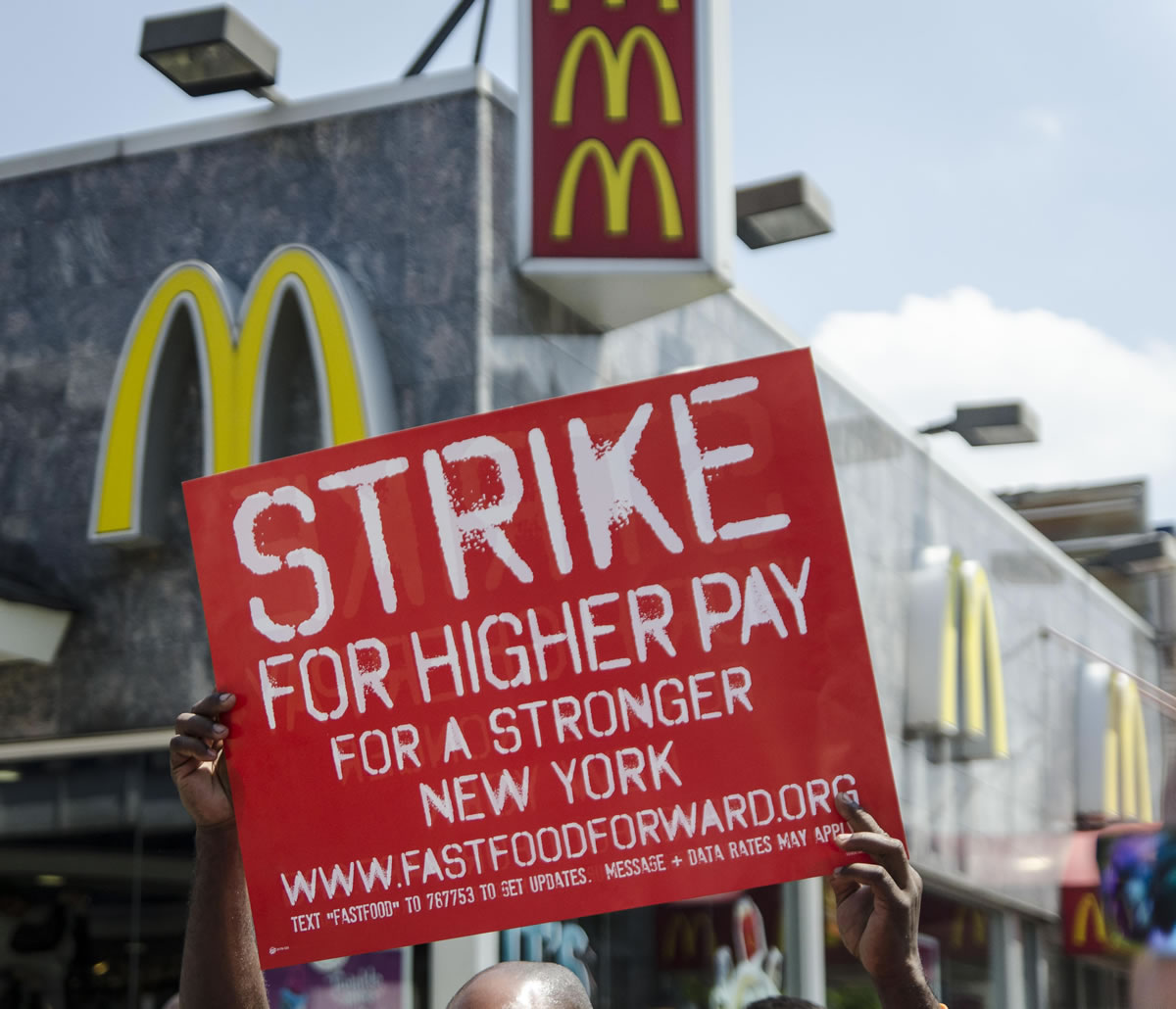

Share
Pushed by organized labor, community groups and Fight for 15 activists, New York lawmakers raised the state’s minimum wage to $15 an hour by the end of 2018.
The measure, part of the state budget, also phases in 12 weeks of paid family and medical leave, the most-generous such law in the United States, said Governor Andrew Cuomo, who signed the legislation Monday. The paid leave requirement will be phased in through 2021.
The minimum wage hike varies with the size of the business and the region of the state. Businesses with at least 11 workers and in the Big Apple would have to raise their minimum to $15 by the end of 2018. Small businesses in the city would have to do so by the end of 2019.
All businesses on Long Island and in Westchester County would have to raise the wage to $15 by the end of 2021, while those in the rest of the state would have to raise it to $12.50 by the end of 2020, with a state board deciding on increases after that.
“California! New York! Pittsburgh! Fifteen dollars an hour is catching on everywhere,” declared Jorel Ware, a McDonald’s worker from New York City and member of the Fight for $15. “When we first went on strike in New York in 2012, people said we had no chance, but we are showing the whole country that when workers stick together, there’s no such thing as impossible.”
State AFL-CIO President Mario Cilento lauded federation members and union locals who lobbied for the minimum wage hike and the paid family leave law. Both measures “are critically important to working people,” Cilento said. He estimated three million New Yorkers would benefit from raising the minimum wage.
“Raising the minimum wage is long overdue and is a step in the right direction toward addressing poverty and income inequality. This meaningful wage will allow hard-working men and women the opportunity to better support themselves and their families, and enjoy a standard of living and quality of life they can be proud of,” he declared.
And extending paid family leave “will have a positive impact on working people by allowing them to put their families first during times of need,” Cilento added.
“Whether it is to bond with a newborn or the opportunity to care for an ill or dying family member, working men and women will no longer be forced to choose between being with loved ones during life-changing moments, and the ability to make ends meet.”
Other states and cities are also moving ahead on paid leave. San Francisco, which years ago was the first big city to enact paid family and medical leave, created six weeks of paid leave for new parents in a unanimous vote by the city’s Board of Supervisors on Tuesday. That day, the Democratic-run Maryland House of Delegates voted 84-54 for paid leave.
The federal minimum wage, at $7.25 hourly, has not been raised since 2009.

